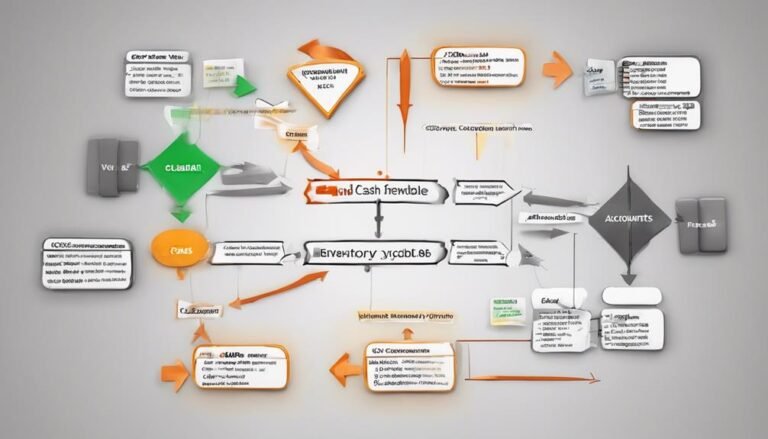Blockchain Facts: What Is It, How It Works, and How It Can Be Used
Blockchain technology revolutionizes data management by providing a secure and transparent network of interconnected blocks. These blocks guarantee data integrity and enable various applications beyond cryptocurrency, like secure supply chain tracking, transparent voting systems, and immutable healthcare records. Through decentralized governance and innovative solutions, blockchain enhances scalability, security, and efficiency. Its potential for revolutionizing industries and reshaping conventional processes is vast, impacting traditional systems with increased transparency, security, and trust. The technology empowers individuals, reduces costs in various sectors, and streamlines processes, offering new value opportunities. Discover more about the transformative power of blockchain technology.
Key Takeaways
- Blockchain is a decentralized ledger with immutable data, ensuring transparency and security.
- It operates on a peer-to-peer network, eliminating the need for central authorities.
- Blockchain technology secures transactions through cryptographic hashes and consensus mechanisms.
- It revolutionizes industries by providing secure and transparent transaction recording.
- Applications include enhancing supply chain traceability, securing medical data, and improving transaction systems.
Blockchain Fundamentals
Blockchain technology revolutionizes data management by establishing a secure and decentralized network of interconnected blocks. A decentralized ledger guarantees transparency and immutability in transactions, making it resilient to fraud.
Cryptocurrency integration is a key feature, enabling secure peer-to-peer transactions without the need for intermediaries. The decentralized nature of blockchain eliminates the risk of a single point of failure, enhancing security.
Each block contains a unique cryptographic hash of the previous block, creating a chain that's resilient to tampering. This innovative technology has paved the way for various applications beyond cryptocurrency, such as supply chain management, voting systems, and healthcare records.
The integration of blockchain technology continues to expand, promising a more secure and efficient way of managing data.
Understanding Blockchain Technology
Revolutionizing data management, blockchain technology establishes a secure and decentralized network of interconnected blocks.
- Decentralized Networks: Blockchain operates on a peer-to-peer network, eliminating the need for central authorities.
- Cryptocurrency Adoption: Blockchain technology gained prominence through its association with cryptocurrencies like Bitcoin.
- Immutable Records: Data stored on a blockchain can't be altered, ensuring data integrity.
- Transparent Transactions: All transactions on a blockchain are visible to network participants, enhancing transparency within the system.
Practical Applications of Blockchain
Exploring real-world applications, blockchain technology revolutionizes industries through its secure and transparent transaction recording system. In the table below, examples of practical applications are highlighted, showcasing how blockchain is reshaping supply chain management and healthcare record-keeping.
| Practical Applications of Blockchain | Description |
|---|---|
| Supply Chain | Enhances transparency and traceability in supply chains, reducing fraud and ensuring authenticity. |
| Healthcare Records | Secures medical data, enabling immutable records, efficient data sharing, and improved patient care. |
Security Measures in Blockchain
Implementing stringent cryptographic protocols is paramount to bolstering the security measures within blockchain technology. Immutable encryption and decentralized validation are key components ensuring the integrity and security of blockchain systems.
To enhance security further, several measures can be implemented:
- Multi-Signature Wallets: Enhances security by requiring multiple private keys to authorize transactions.
- Consensus Mechanisms: Utilize mechanisms like Proof of Work or Proof of Stake to validate and secure transactions.
- Cold Storage: Store private keys offline to prevent hacking attempts.
- Penetration Testing: Regularly assess the system for vulnerabilities to proactively address security risks.
Exploring Blockchain Challenges
Security measures in blockchain technology are essential for guaranteeing data integrity. However, they face a myriad of challenges that demand innovative solutions. Scalability concerns arise due to the limitations in processing capabilities and the increasing volume of transactions. This issue hampers the ability of blockchain networks to handle a high number of transactions efficiently.
Regulatory challenges also pose a significant obstacle as governments grapple with the oversight of blockchain technologies to prevent illicit activities. The need for clear and adaptable regulations that balance innovation with security is vital for the widespread adoption of blockchain systems.
Overcoming these challenges will require collaborative efforts from industry experts, policymakers, and technologists to ensure the long-term success and viability of blockchain technology.
The Future of Blockchain
The future of blockchain technology holds immense potential for revolutionizing various industries and reshaping conventional processes. Some key aspects to take into account are:
- Decentralized Governance: Blockchain's ability to enable decentralized decision-making processes can lead to more transparent and democratic systems.
- Evolutionary Advancements: Continuous innovations in blockchain technology are expected to enhance scalability, security, and efficiency.
- Interoperability: Future blockchain systems may focus on seamless integration with other technologies to create all-encompassing solutions.
- Industry Disruption: As blockchain matures, it could disrupt traditional business models and create new opportunities for value creation.
Impact of Blockchain Technology
With its widespread adoption across industries, blockchain technology continues to revolutionize traditional processes and systems. The social implications of blockchain are profound, offering increased transparency, security, and trust in various sectors.
This technology has the potential to enhance economic benefits by reducing costs, eliminating intermediaries, and streamlining processes. Blockchain's decentralized nature empowers individuals by giving them more control over their data and assets.
Additionally, smart contracts enable automated transactions, reducing the need for manual intervention and increasing operational efficiency. The immutable and transparent nature of blockchain guarantees accountability and accuracy in record-keeping, which can lead to improved governance and reduced fraud.
Conclusion
To sum up, blockchain technology is like a digital fortress, safeguarding data with its decentralized architecture and cryptographic shields.
As industries continue to adopt blockchain for its transparency and trustworthiness, the potential for innovation and disruption grows exponentially.
Embracing blockchain is like accessing a new domain of possibilities, where security, efficiency, and decentralization pave the way for a digital revolution.
The future holds endless opportunities for blockchain to reshape the way we interact, transact, and trust in the digital age.







